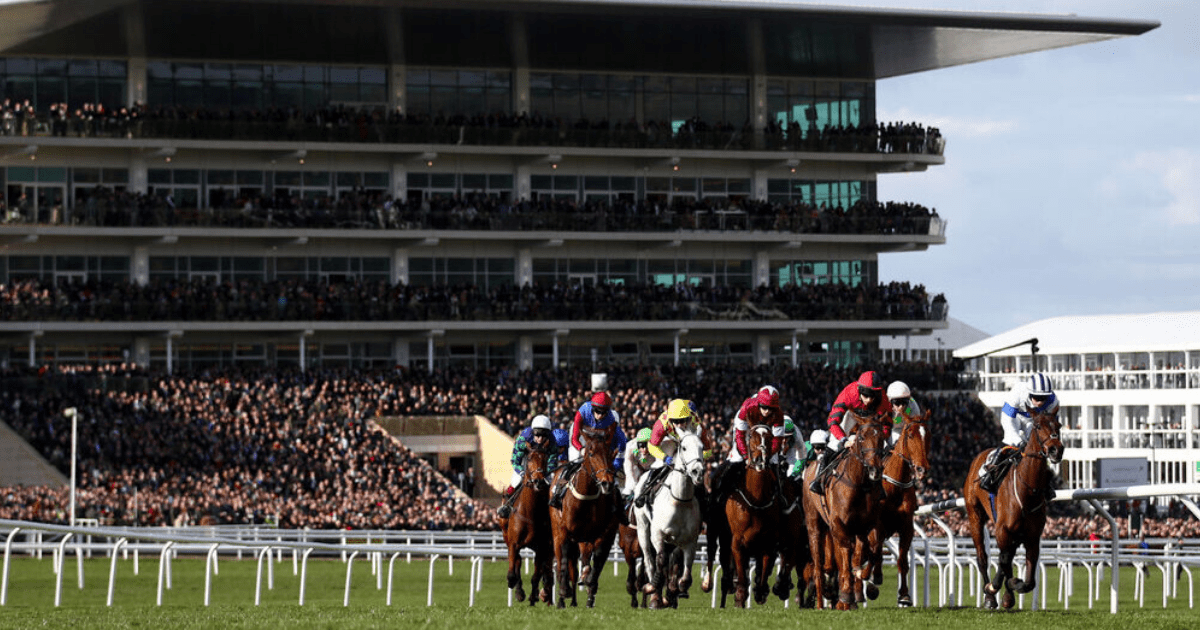THERE are big fixtures in racing – and then there are the really big fixtures that define the season.
Sun Racing has gone through the 2024 calendar below and picked out the key meetings and races at home and abroad.
The Cheltenham Festival is the biggest week of the year
The big races are followed by the racecourse where they take place in brackets.
January
1 – New Year Meeting – Cheltenham
27 – Clarence House Chase (Ascot)
27 – Trials Day – Cheltenham
February
3-4 – Dublin Racing Festival (Leopardstown)
March
12-15 – Cheltenham Festival
30 – 1 April – Fairyhouse Easter Festival
April
1 – Irish Grand National (Fairyhouse)
11-13 – Grand National Festival (Aintree)
13 – Grand National
26-27 – bet365 Jump Finale (Sandown)
30-4 May – Punchestown Festival
May
3-5 – Qipco Guineas Weekend (Newmarket)
4 – Kentucky Derby (Churchill Downs)
8-10 – Boodles May Festival (Chester)
15-17 – Dante Festival (York)
18 – Al Shaqab Lockinge Stakes Day (Newbury)
31-1 June – Betfred Derby Festival (Epsom)
June
18-22 – Royal Ascot
28-30 – Irish Derby (Curragh)
27-29 – Northumberland Plate Festival (Newcastle)
July
6 – Coral Eclipse (Sandown)
11-13 – Boodles July Festival (Newmarket)
26-27 – King George Weekend (Ascot)
29-4 Aug – Galway Summer Festival
30-3 Aug – Qatar Goodwood Festival
August
21-24 – Sky Bet Ebor Festival (York)
September
12-15 – Betfred St Leger Festival (Doncaster)
14-15 – Irish Champions Festival (Leopardstown/Curragh)
19-21 – Virgin Bet Ayr Gold Cup
26-28 – Cambridgeshire Meeting (Newmarket)
October
5-6 – Qatar Prix de l'Arc de Triomphe (Longchamp)
11 – Future Champions Day (Newmarket)
19 – Qipco British Champions Day (Ascot)
November
5 – Melbourne Cup (Flemington)
15-17 – The November Meeting (Cheltenham)
23 – Betfair Chase (Haydock)
23-24 – Punchestown Winter Festival
29-20 – Coral Winter Carnival (Newbury)
30-1 Dec – Fairyhouse Winter Festival
December
6-7 – Betfair Tingle Creek Festival (Sandown)
26-27 – Ladbrokes Christmas Festival (Kempton)
26-29 – Leopardstown Christmas Festival
Frequently Asked Questions
What’s the role of a jockey in training a racehorse?
Jockeys play an essential role in training racehorses. Jockeys not only provide feedback to the horses on their performance during training, but they also educate the horses about racing tactics such as pacing and positioning. A good jockey is able to recognize the horse’s strengths, weaknesses and how they can be improved.
How can I prepare my horse for racing?
A racehorse’s conditioning is a process that involves a combination of slow, long distance work for stamina as well as shorter, faster workouts for speed. It is important to strengthen the horse’s cardiovascular system, muscles, and skeletal structures over time by following a regiment that mimics racing conditions without causing injury.
What age should a race horse start training?
Horses can start their basic training as yearlings, but most begin their more rigorous race training and conditioning when they are around two years old. This is when their bodies are mature enough to handle the stresses of the track while still being young and adaptable for the learning process. Depending on the temperament and development of the horse, exact timing may differ.
What’s the first step when training a racehorse?
The first phase of training a racing horse involves “breaking”, where the horse gets used to wearing a saddle and bridle as well as the weight of the rider. During these early sessions, patience and gentle handling are paramount to ensure the horse learns to be comfortable with human interaction and the equipment it will wear throughout its racing career.
Can you train your racehorse anywhere?
While initial training can occur on a variety of tracks, specific race training often requires facilities that simulate the conditions the horse will face in competition. This means that you need to have tracks that are of the correct size, with the same kind of surface your horse will be racing. This helps to condition horses and allows them to become familiar with that specific racing environment.
How do you maintain your racehorse’s mental health?
Maintenance of a racehorse’s mental health is as crucial as its physical conditioning. Varied routines, regular turnout to pasture, mental stimulation, and gentle, patient handling all contribute to a racehorse’s psychological well-being. Ensuring the horse has social interaction with other horses and providing a calm, stable environment helps to prevent stress and behavioral issues.
Statistics
- Approximately 70% of a racehorse’s diet consists of forage, with the remainder made up of grains and supplements to meet their high-calorie needs.
- Around 80% of thoroughbred racehorses begin their racing careers by the age of two, according to industry estimates.
- The Injury Database from The Jockey Club reports that synthetic racing surfaces have a lower horse fatality rate than dirt tracks, with a statistically significant difference of 1.2 fatalities per thousand starts on synthetics compared to 2.0 on dirt tracks.
- Gastrointestinal issues affect up to 90% of racehorses during their training, emphasizing the need for careful dietary management.
- Studies suggest that proper early training can reduce the risk of musculoskeletal injuries in racehorses by up to 50%.
- An extensive survey indicated that over 90% of racehorse trainers utilize swimming as a low-impact exercise in their conditioning routines.
External Links
theridinginstructor.net
thoroughbred-racing.net
thoroughbredracing.com
jockeyclub.com
grayson-jockeyclub.org
britishhorseracing.com
How To
How to Train a Young Racehorse
Beginner’s training for a young horse should focus on building familiarity and trust. Introduce a horse to a bridle (or saddle), and let it feel the weight of a rider. Leading the horse through the basics — walk, turn, halt — is a good way to prepare it for trotting. Consistency in training is important, along with a calm, patient approach. This will build confidence and help prevent injury or stress.
Did you miss our previous article…
https://www.sportingexcitement.com/horse-racing/how-to-read-a-racecard-your-guide-to-picking-a-winner/

